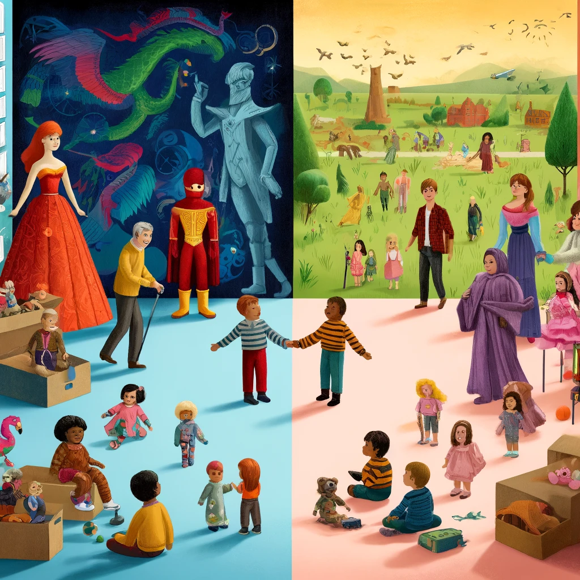Dolls have long been cherished companions for children around the world. Beyond their role as toys, they serve as invaluable tools in the development of social and empathetic skills in young minds. Through imaginative play and emotional exploration, dolls offer a gateway to understanding and navigating the complexities of human relationships.
A Mirror of Society
Dolls often reflect the diversity and nuances of human society. From different ethnicities to varying body types and abilities, they provide children with a tangible representation of the world around them. In playing with dolls that mirror real-life diversity, children learn to appreciate and respect differences from a young age, fostering empathy and inclusivity.
Emotional Expression and Empathy
One of the most significant roles of dolls is in facilitating emotional expression and empathy. Children often project their own feelings onto their dolls, using them as a safe outlet for exploring complex emotions. Whether through comforting a doll in distress or role-playing social scenarios, children learn to recognize and respond to the emotions of others, thus honing their empathetic abilities.
Communication and Social Skills
Dolls serve as companions with whom children can practice communication and social interactions. Through role-play scenarios, children learn the art of conversation, negotiation, and compromise. They experiment with different social roles and dynamics, developing essential skills for building and maintaining relationships in the real world. Additionally, playing with dolls in groups fosters collaboration and teamwork, teaching children the importance of cooperation and mutual respect.
Problem-Solving and Conflict Resolution
In the realm of imaginative play, children often encounter conflicts and obstacles that require resolution. Whether it’s deciding who gets to play with which doll or navigating interpersonal disagreements, children learn to negotiate and find solutions to conflicts in a safe and supportive environment. Through this process, they develop critical problem-solving skills and learn the value of communication and compromise in resolving disputes.
Building Empathy Through Caretaking
Dolls also offer children the opportunity to engage in caretaking roles, nurturing their sense of empathy and responsibility. By feeding, dressing, and comforting their dolls, children learn to empathize with the needs and feelings of others. This caregiving experience not only fosters empathy but also instills a sense of compassion and nurturing behavior that extends beyond their interactions with dolls to their relationships with peers and family members.
Conclusion
In essence, dolls play a multifaceted role in the development of social and empathetic skills in children. Through imaginative play, emotional exploration, and caregiving experiences, children learn to navigate the complexities of human relationships with empathy, compassion, and understanding. As timeless companions, dolls continue to shape the hearts and minds of generations, nurturing a more empathetic and inclusive society one play session at a time.



0 Comments